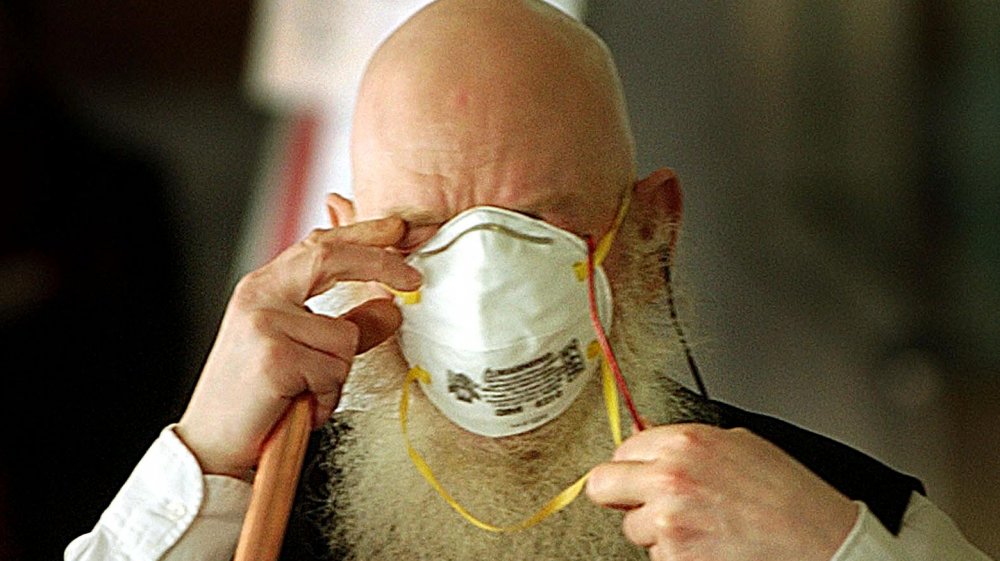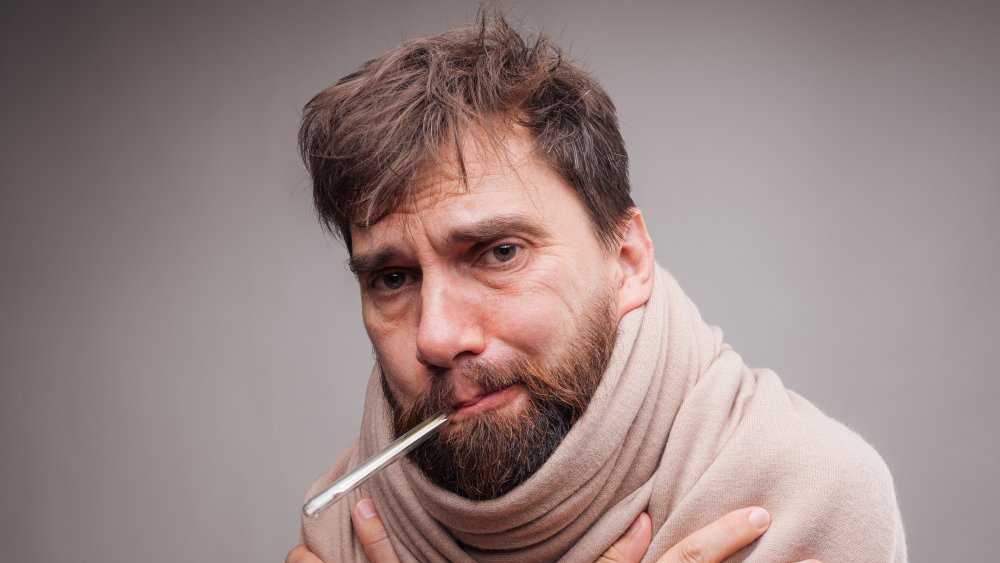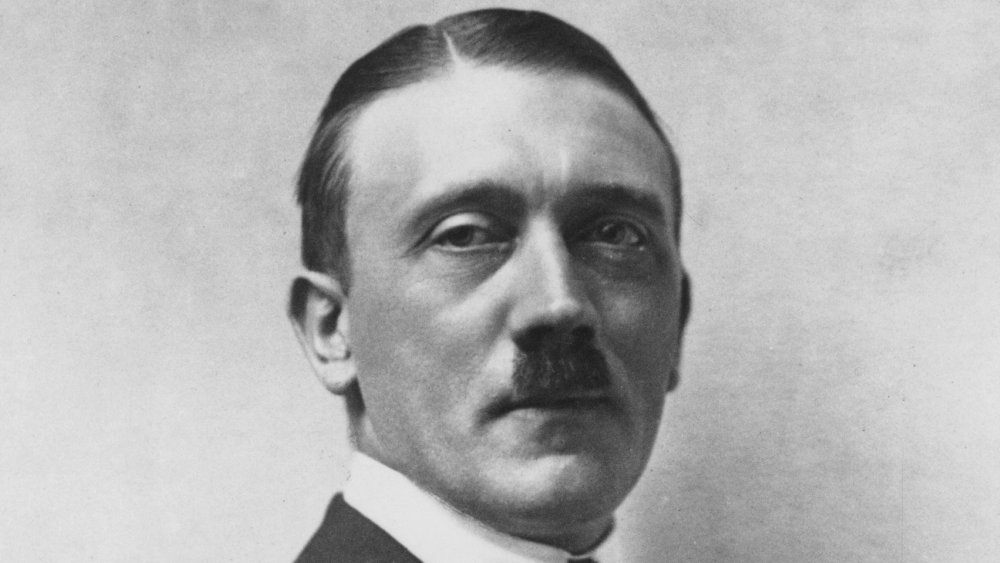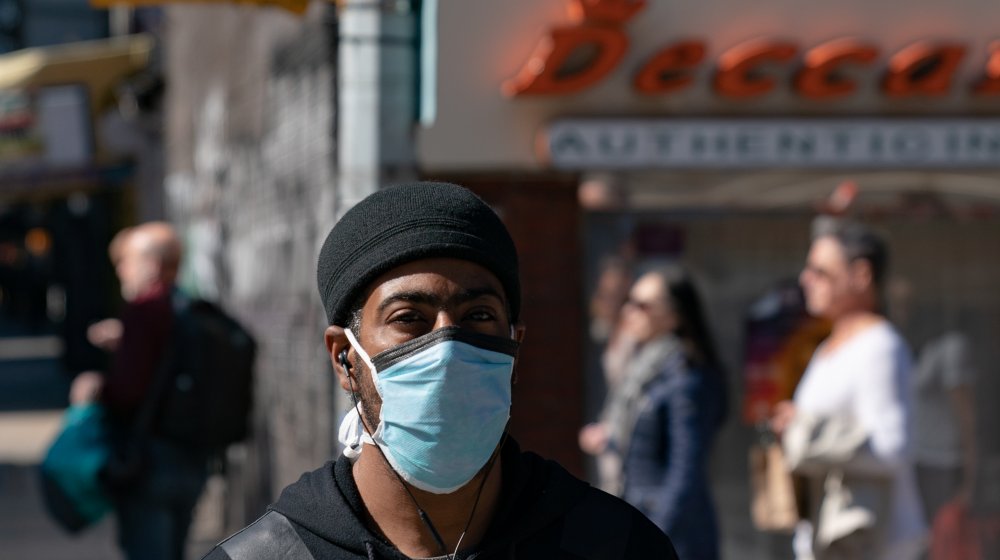CDC Has A Warning For Men Amid Coronavirus Concerns
As COVID-19 continues its tear through the general public, killing hundreds and throwing the international economy into disarray, the CDC offers new advice seemingly on a daily basis. Hands must be washed for at least two Happy Birthdays, handshakes and hugs are for chumps, and James Bond, himself a likely repository for several communicable pathogens, has been pushed out of his Spring release date due to public health concerns. It seems that there is little else which this budding pandemic can take from us.
Or not. Now, the Center for Disease Control has released a new warning for men. Specifically, it goes out to men of a bespoke or woodsmanly persuasion. Facial hair, they point out, can be a real hindrance to any attempts at blocking the virus with a mask.
Yes, we have lived to see horrors beyond our comprehension. The Duck Dynasty will soon lie in tatters. Coronavirus is coming for our beards.
The COVID-19 situation just keeps getting hairier
This all goes back to 2017 and a CDC post about facial hair and its potential to mess with face masks and airtight respirators. The post lists all of the styles of beard, mustache, and sideburn styles which could interfere with the efficacy of such devices: goatees, chin curtains, and mutton chops join full beards in the ranks of problem customers. Meanwhile, in good news for both creeps and even worse creeps, pencil mustaches and guardians of the problematic Michael Jordan circa-2010 look are safe and sound, and probably better off for covering the lower halves of their faces.
As AskMen points out, the use of a facial mask hasn't been proven effective in stopping COVID-19, but is still considered a solid idea if you're already suffering from a respiratory illness. If that's the case, as painful as it may be, you might want to make like Steve Ballmer and grab those clippers. After all, CDC reports state that the presence of a beard on the same head as a face mask can lead to "20 to 1000 times more leakage," which, if nothing else, serves as your unpleasant yearly reminder that the word "leakage" exists and is easily applied to the functions of the human body.
A historic about face
Attention to the potential issues raised by piling a breath mask on top of a soup strainer aren't a new phenomenon. During World War I, soldiers from all over the world were required to shave their beards to accommodate the use of gas masks. According to the Telegraph, this was how Hitler wound up with his iconic look. His sister in law, Bridget Hitler, claimed that she was responsible, which isn't so much prescient as it is a means of raising awareness that there was, at one point, a woman named Bridget Hitler.
The tradition of baby-smooth faces in the military continues to this day, but beards and facial hair have trended hard among the general public in the last few years. According to Statista, 60% of men in the United States wear their face locks long at least some of the time. 33% claimed to "always have a beard." This might be due to the way that, according to some studies, people perceive men with beard as more masculine, responsible, and mature.
Whether these benefits carry over when bubbling fountains of mucus are pushing their way out of a person's face mask through their exceedingly manly handlebar on the subway during a public health crisis? Well, only time will tell.
The truth, unmasked
It's worth pointing out that, despite their popularity, surgical masks probably aren't doing what you think they're doing. They're used by medical professionals in environments where immune response might be compromised, but they're there to keep germs in, not out. So why are they glued to so many people's faces like so many microbial security blankets?
Quartz reports that the chin sheaths first rose to public prominence in Japan during the influenza outbreaks of the early 20th century. A second pandemic in 1934 brought them back to the local stylistic forefront, as did postwar industrialization and the air pollution that came with it. They also state that the practice might stem more from religious philosophy than from medical research. Countries where breath masks started their cultural foothold tend to be influenced by Taoism and the concept that the air you breathe can negatively affect your spiritual energy. Exposure to caustic vapor, referred to as "feng," can lead to the depletion of bodily defenses. In theory, it could all stem back to the same line of thinking that gave us that Korean "fan death" urban legend a few years back.



